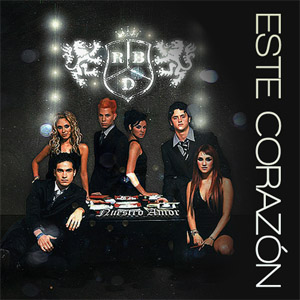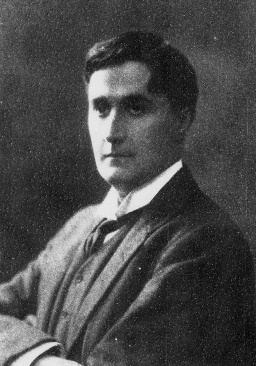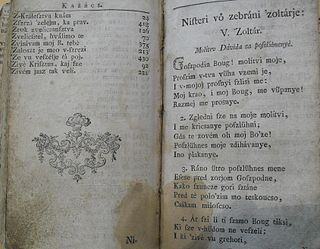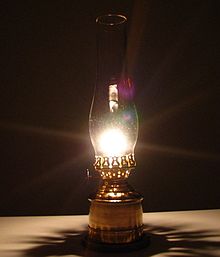"The Spirit of God Like a Fire Is Burning" is a hymn of the Latter Day Saint movement. It was written by W. W. Phelps, one of the most prolific hymnwriters of early Latter Day Saint movement.

Ballad of Easy Rider is the eighth album by the American rock band the Byrds and was released in November 1969 on Columbia Records. The album was named after the song "Ballad of Easy Rider", which had been written by the Byrds' guitarist and singer, Roger McGuinn, as the theme song for the 1969 film, Easy Rider. The title was also chosen in an attempt to capitalize on the commercial success of the film, although the majority of the music on the album had no connection with it. Nonetheless, the association with Easy Rider heightened the Byrds' public profile and resulted in Ballad of Easy Rider becoming the band's highest charting album for two years in the U.S.
Hosanna is a liturgical word in Judaism and Christianity. In Judaism it refers to a cry expressing an appeal for divine help. In Christianity it is used as a cry of praise.
"Streets of Laredo", also known as "The Dying Cowboy", is a famous American cowboy ballad in which a dying ranger tells his story to another cowboy. Members of the Western Writers of America chose it as one of the Top 100 Western songs of all time.
"Sussex by the Sea" is a song written in 1907 by William Ward-Higgs, often considered to be the unofficial county anthem of Sussex. It became well known throughout Sussex and is regularly sung at celebrations throughout the county. It can be heard during many sporting events in the county, during the Sussex bonfire celebrations and it is played by marching bands and Morris dancers across Sussex. It is the adopted song of Brighton & Hove Albion Football Club, Sussex Division Royal Naval Reserve, Sussex Association of Naval Officers and Sussex County Cricket Club.

A Christian child's prayer is Christian prayer recited primarily by children that is typically short, rhyming, or has a memorable tune. It is usually said before bedtime, to give thanks for a meal, or as a nursery rhyme. Many of these prayers are either quotes from the Bible, or set traditional texts.

"Este Corazón" is a song recorded by Mexican pop group RBD. It was released as the fourth and last official single from their second studio album, Nuestro Amor (2005) and third radio single. The song was used as the second opening of the third season of the telenovela Rebelde. Despite having a Portuguese version, it was not released to radio in Brazil. It peaked at number 10 on Billboard's Hot Latin Songs Chart.

"Michael, Row the Boat Ashore" is a traditional spiritual first noted during the American Civil War at St. Helena Island, one of the Sea Islands of South Carolina. The best-known recording was released in 1960 by the U.S. folk band The Highwaymen; that version briefly reached number-one hit status as a single.

Bradley Ellingboe is an American composer, conductor, and bass-baritone singer.

The Five Mystical Songs are a musical composition by English composer Ralph Vaughan Williams (1872–1958), written between 1906 and 1911. The work sets four poems by seventeenth-century Welsh poet and Anglican priest George Herbert (1593–1633), from his 1633 collection The Temple: Sacred Poems. While Herbert was a priest, Vaughan Williams himself was an atheist at the time, though this did not prevent his setting of verse of an overtly religious inspiration. The work received its first performance on 14 September 1911, at the Three Choirs Festival in Worcester, with Vaughan Williams conducting.
"Ballad of Easy Rider" is a song written by Roger McGuinn, with input from Bob Dylan, for the 1969 film Easy Rider. The song was initially released in August 1969 on the Easy Rider soundtrack album as a Roger McGuinn solo performance. It was later issued in an alternate version as a single by McGuinn's band the Byrds on October 1, 1969. Senior editor for Rolling Stone magazine, David Fricke, has described the song as perfectly capturing the social mood of late 1969 and highlighting "the weary blues and dashed expectations of a decade's worth of social insurrection".

"I Wonder Where My Easy Rider's Gone?" is a ragtime/blues song written by Shelton Brooks in 1913. Sometimes categorized as hokum, it led to an answer song written in 1915 by W.C. Handy, "Yellow Dog Rag", later titled "Yellow Dog Blues". Lines and melody from both songs show up in the 1920s and 1930s in such songs as "E. Z. Rider", "See See Rider", "C. C. Rider", and "Easy Rider Blues".
The following is a list of albums released with songs from or based on the animated series VeggieTales.
"Hosanna/Hosaanaa" is a Tamil/Telugu/Hindi song from the 2010 Tamil film Vinnaithaandi Varuvaayaa,Telugu film Ye Maaya Chesave and 2012 Hindi film Ekk Deewana Tha composed by A. R. Rahman, sung by Vijay Prakash and Suzanne D'Mello featuring Tamil lyrics by Thamarai, and the rap portion in all versions by Blaaze. The song features additional vocals by Vivek Agarwal, Dr. Narayan, V. V. Prasanna and Haricharan and chorus by K. M. Music Conservatory. In the 2012 Hindi remake of the film, Ekk Deewana Tha the song was written by Javed Akhtar sung by Leon D'Souza and Maria Roe Vincent and the interlude Hosanna humming by Suzanne D'Mello. The song became very popular in all versions and was #1 in the year end music charts of 2010.

Psalm 5 is the fifth psalm of the Book of Psalms, beginning in English in the King James Version: "Give ear to my words, O LORD, consider my meditation". In Latin, it is known as "Verba mea auribus percipe Domine". The psalm is traditionally attributed to David. It reflects how the righteous man prays for deliverance not only for freedom from suffering, but to allow himself to serve God without distraction. The New King James Version entitles it "A Prayer for Guidance".

The Magnificat by John Rutter is a musical setting of the biblical canticle Magnificat, completed in 1990. The extended composition in seven movements "for soprano or mezzo-soprano solo, mixed choir, and orchestra " is based on the Latin text, interspersed with "Of a Rose, a lovely Rose", an anonymous English poem on Marian themes, the beginning of the Sanctus and a prayer to Mary. The music includes elements of Latin American music.
"No Surrender (to the IRA)" is a British football chant sung to the tune of the "Oil in My Lamp" hymn which expresses opposition to the Provisional Irish Republican Army. It was commonly sung in UK pubs in the 1970s and 1980s, including by Rangers F.C. supporters, many of whom held strong unionist sentiments. It may have been adopted by English fans who switched to following Scottish football clubs (including Rangers F.C.) during the five-year period that English clubs were banned from competing in UEFA competitions following the 1985 Heysel Stadium disaster. By the 21st century, the song has become controversial in both the UK and Ireland. In 2013, The Football Association of England emailed supporters, asking them to refrain from singing it ahead of a May 2013 game against the Republic of Ireland national football team.









